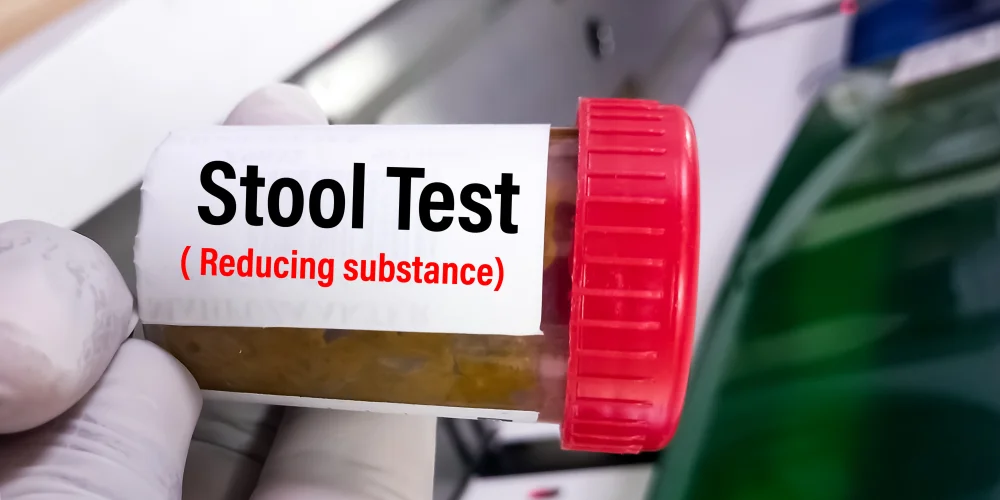Stool Routine Test
Comprehensive Assessment of Stool Health
It is the Stool Routine Test is a non-invasive diagnostic test that involves the microscopically examined stool samples. It is used to identify anomalies like parasites and bacteria, blood and other elements that could suggest digestive issues or infections. This test can provide valuable insight into the overall health and function in the digestion system. It aids in the management and diagnosis of digestive disorders. Through the identification of pathogens and other abnormalities in stool, doctors can develop appropriate treatment plans to monitor the effectiveness of treatments, and ensure the best digestive health of patients.

When is the Stool Routine Test Prescribed?
Stool Routine Test Stool Routine Test is prescribed in a variety of clinical situations:
- Gastrointestinal Infections : to detect the presence of viral, bacterial or parasitic infections in the intestinal tract and cause symptoms like abdominal pain, diarrhea, and fever.
- Digestive disorders : This aids in assessing diseases such as inflammation intestinal disease (IBD) as well as celiac disease and malabsorption syndromes.
- Monitoring Treatment : In patients who are receiving treatment for gastrointestinal illnesses or other disorders The test measures the treatment response and also identifies any recurrence.
Routine health check-ups are part of your regular health screenings, we will check for the function of the digestive system and overall health of the gastrointestinal tract.
Preparation for the Stool Routine Test
There is no special preparation needed to perform an Stool Routine Test. Patients may collect a tiny stool sample using an appropriate container and then send the sample to the laboratory to be analyzed. It is important to follow the specific directions given by your healthcare professional about the handling of the sample and collection.
Parameters Considered During Stool Routine Test
Stool Routine Test Stool Routine Test evaluates several parameters, such as:
- The appearance and consistency : evaluating the texture, color and the consistency that the stool samples.
- Microscopic Examination : Observing the presence of white and red blood cells, food particles, as well as other cells.
- Prevalence of Pathogens : Identifying parasites, viruses, bacteria or their eggs and cysts that might be a sign of the presence of an infection.
Chemical Tests Screening for mucus, blood fat, blood, and other chemicals that may suggest digestive problems and malabsorption disorders.
Time Required for Stool Routine Test Report
A Stool Routine Test typically provides results within one to three days, based on the tests performed and the workload of the laboratory. The results are sent to the healthcare professional who will review them with the patient and suggest any further steps if required.
Stool Routine Test Price
In Chirayu Super Speciality Hospital, we provide Chirayu Super Speciality Hospital, we offer the Stool Routine Test price is only 100 Rs, making it accessible to those seeking a comprehensive gastrointestinal health assessments. This test is vital in diagnosing a variety of gastrointestinal disorders through the examination of stool samples for any abnormalities as well as pathogens and other indicators of digestion health. Our commitment to provide affordable healthcare guarantees that patients are able to undergo the required diagnostic procedures without financial obstacles that hinder the early detection and efficient management of digestive disorders.
Booking an Appointment for Stool Routine Test
Scheduling an appointment for the Stool Routine Test at Chirayu Super Speciality Hospital in Bhayandar is quick and easy. Our pathology lab in Bhayandar allows patients to book appointments via the hospital website or by contacting our team for assistance. We are dedicated to providing a seamless experience, ensuring patient comfort and privacy throughout the process.
What Our Patients Say
Hear from our valued patients about their experiences at Chirayu Super Speciality Hospital and how our care has made a positive impact on their health and well-being.


Reliable and confidential testing experience at Chirayu Hospital.


Excellent healthcare professionals providing detailed gastrointestinal health assessments.


Peace of mind knowing I received quality healthcare for my Stool Routine Test.


Supportive care and comprehensive assessment at Chirayu Super Speciality Hospital.


Accessible healthcare services and affordable testing options.


Clear explanations and prompt results for my digestive health check.
Frequently Asked Questions
Here, we provide answers to some of the most commonly asked questions to help you better understand our services, policies, and facilities. If you have any additional questions, please do not hesitate to contact us.
It can detect gastrointestinal infections, digestive disorders, and other conditions affecting the digestive system.
No, fasting is not usually required. Follow the healthcare provider’s instructions for sample collection.
Patients collect a small sample of their stool in a clean container provided by the laboratory or hospital.
Further tests or investigations may be recommended based on the findings to confirm a diagnosis and plan treatment.
No, the Stool Routine Test primarily assesses gastrointestinal health. Cancer screenings may require specific tests like colonoscopy or fecal occult blood test (FOBT).